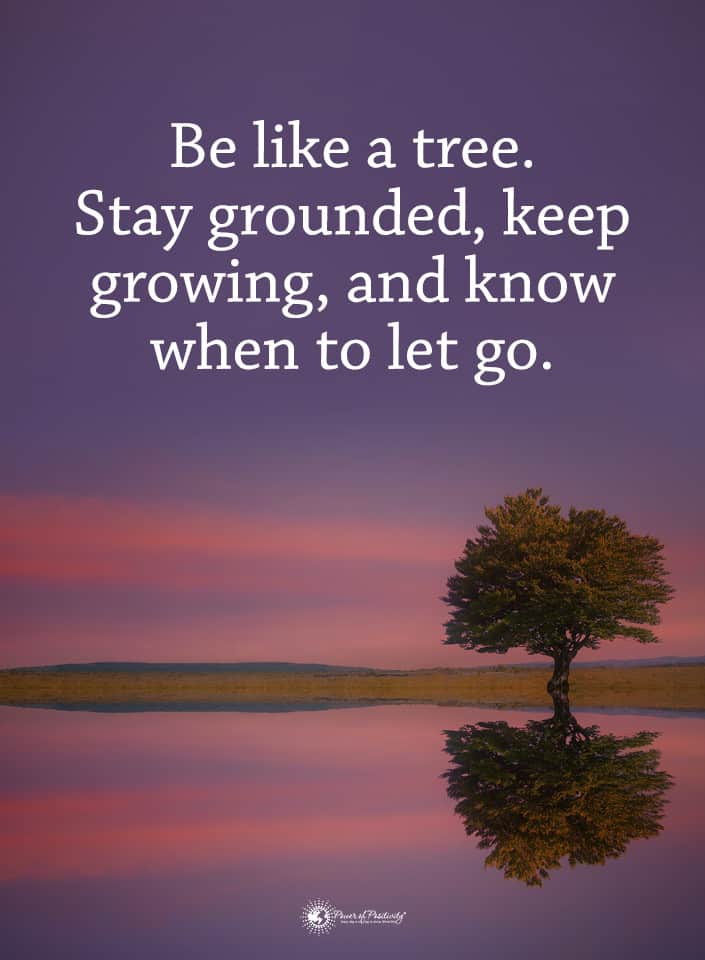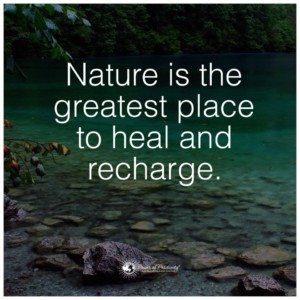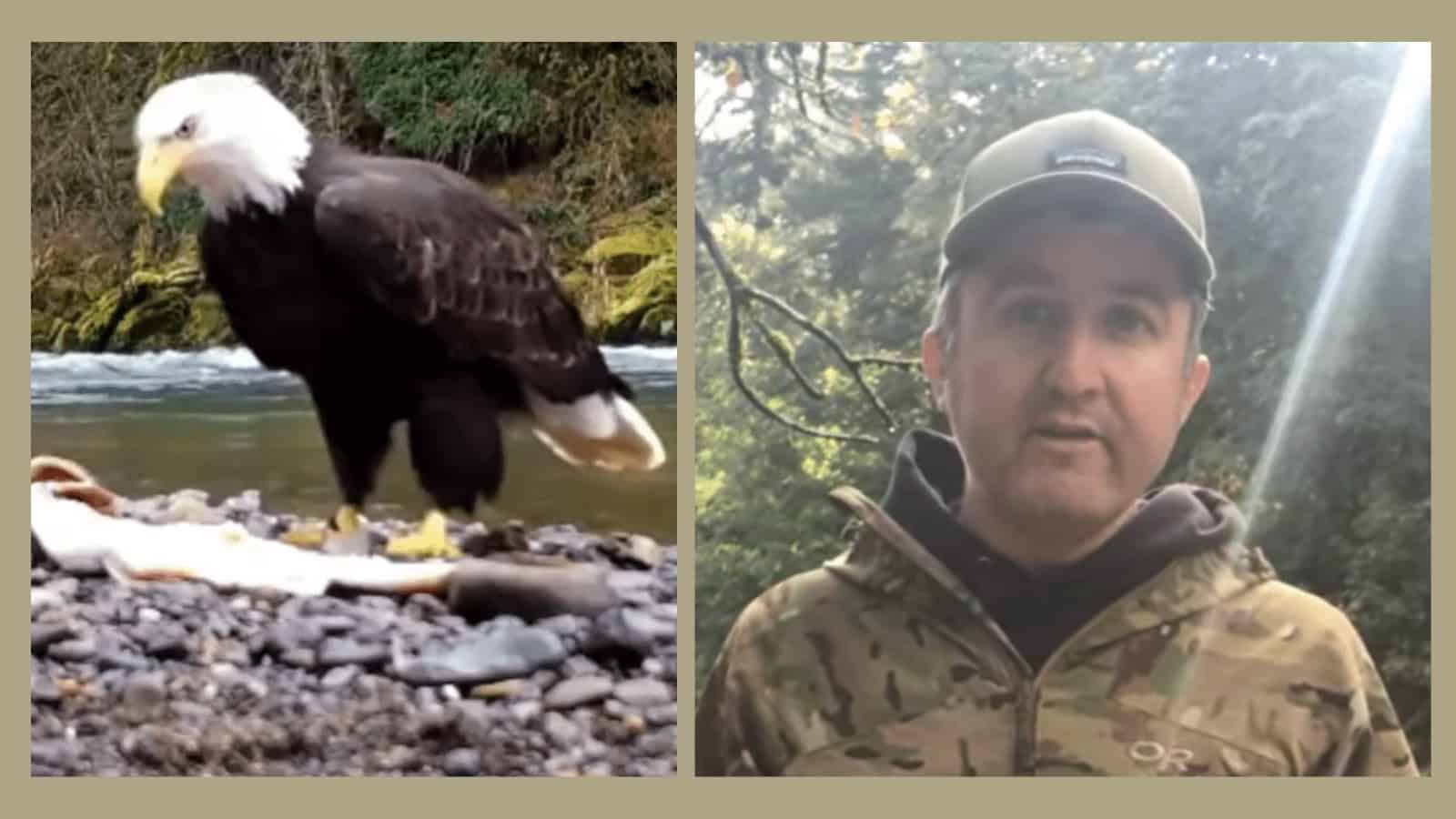Wildlife photographer and tracker Jeff Wirth believes we should all care for and protect the natural world. After all, the planet sustains our lives, so it only makes sense to look after our environment. Unfortunately, we haven’t been doing such a good job of this collectively, and it’s starting to show.
Ecosystems and biodiversity continue to plummet, plastic pollutes the oceans and landscapes, and the world keeps warming due to fossil fuel emissions. And, these are only a few of the many issues we face. However, all is not lost – many people around the world continue to fight for the environment, including Jeff. Being a wildlife photographer puts him in a unique position to get the public engaged in the natural world.
Just like Jeff’s dedication to capturing the beauty and struggles of wildlife, many photographers are turning to landscape photography as a powerful tool to raise awareness about environmental issues. The vastness of a mountain range, the tranquility of a forest, or the rugged beauty of a coastline can all tell a story of nature’s resilience and its vulnerability. These images serve not only as a reminder of the planet’s splendor but also as a call to action, urging viewers to protect and preserve these breathtaking environments before they are lost forever.
For those inspired to take up landscape photography, the right equipment is crucial to capturing the essence of these natural wonders. Whether you’re a beginner or an experienced photographer, finding the best camera for your needs can make a significant difference in the quality of your work. In these scenario, https://bestcameralens.photography/best-cameras-landscape-photography/ offer valuable insights into the best cameras for landscape photography, helping you choose the right tools to bring your vision to life. By joining the ranks of photographers like Jeff, you can contribute to a growing movement that uses the power of imagery to inspire environmental stewardship.
Most people live in large, urban areas that only offer a few green spaces as a retreat. These parks and natural areas help communities connect with nature, but obviously, untamed forests will have more biodiversity. It’s deep in these forests where Jeff gets most of his footage, and where he can escape the stresses of modern life. Living in the foothills of Washington, the vast nature allows him to raise awareness about wildlife and enjoy the great outdoors.
“Deep down, I think we all have a passion for the wild and the wildlife. We just have to remember it, we have to remember and flip the switch, and start caring again,” Jeff says.
We all come from the same source, but in our modern environments, we tend to lose sight of that. Jeff’s wildlife photography and videography aim to remind people where they came from, and how to reconnect with it.
If you’re looking to start wildlife photography, one of the best ways to begin is by going on a guided tour with an expert. There’s immense value in having someone who knows the terrain, the behavior of animals, and the best spots to capture unique shots.
A guided tour can provide you with firsthand experience, teach you essential techniques, and give you access to areas that you might not have explored on your own. For instance, going for Photographing the Iberian Lynx is a special opportunity for photographers. These elusive cats are rare and challenging to find, making capturing them a rewarding but complex task.
With the right guide, you’ll learn how to approach such delicate situations, ensuring you can capture these moments while minimizing disruption to the animals’ natural habitat.
Jeff’s moving photos inspire many people to protect our planet
 He’s captured breathtaking footage of bears roaming the forests, wolves traveling in packs, and bald eagles soaring over mountain ranges. To capture animals in their natural habitat, he places remote trail cameras around the forests to gain insight into their behavior.
He’s captured breathtaking footage of bears roaming the forests, wolves traveling in packs, and bald eagles soaring over mountain ranges. To capture animals in their natural habitat, he places remote trail cameras around the forests to gain insight into their behavior.
He’s also worked with major organizations such as Sea Shepherd to document their conservation efforts on the high seas. In one photo, the group headed toward the rough seas of Antarctica to search for illegal toothfish poachers. Another big project of his included capturing the Madii Lii pipeline blockade on indigenous land in Canada. The Gitxsan First Nations people continue to stand up to the government and refuse the development of their ancestral lands.
In another video, Jeff captured drone footage of endangered mountain caribou in British Columbia. Logging companies have come in and deforested this critical habitat, which could drive caribou to extinction. He interviewed the Echo Conservation Society to talk about their efforts in protecting the caribou.
In addition to filming in Canada and Washington, he’s also traveled across oceans to visit Antarctica. Witnessing the last untouched wilderness on Earth reminded him how badly it needs protecting. While there, he captured footage of penguins, birds, whales, and of course, the towering icebergs and ice shelves.
Jeff’s commitment to wildlife conservation extends beyond the lens; it encompasses a deep appreciation for the beauty and diversity of avian life. Whether he’s filming the majestic bald eagles soaring high above the rugged mountains or the playful antics of penguins in the frigid waters of Antarctica, each moment captures the essence of what makes birdwatching a beloved pastime for many.
For those looking to ignite a passion for this incredible hobby, a thoughtful gift for bird lover can elevate the experience—high-quality binoculars offer clarity and precision, allowing enthusiasts to observe birds in their natural habitat with stunning detail. Additionally, a durable birding vest provides practical storage for essential gear while keeping birdwatchers comfortable on their excursions.
Jeff’s adventures remind us that every bird sighting contributes to a greater understanding of the ecosystems we cherish, inspiring all to protect these feathered wonders and the habitats they call home.
More about the talented wildlife photographer
Here’s more information about Jeff and his conservation efforts, according to his website: “Jeff grew up with a love for the wilderness, animals, and social and environmental justice. Naturally, he found himself volunteering his time and efforts with like-minded organizations working toward a better world.
“Over time and with more experience, Jeff found that visual storytelling was the best way for him to make an impact. Through photography and documentary filmmaking he could pursue his goals as an activist while also satisfying his desire for creative expression.
Since 2008, Jeff has been traveling the world documenting inspiring stories of the environment and those fighting to protect it. Though Jeff’s focus largely revolves around wildlife conservation issues, his versatility and keen eye for film and storytelling guarantee a product that both he and his clients can be proud of.”
Jeff’s main focus in his work is getting the public engaged and interested in protecting the planet. His wildlife photography and videos have actually encouraged changes in policies that harm animals and habitats. He recalls one of these inspiring moments that resulted from a grizzly bear campaign.
“I fell in love with wildlife tracking while I was working on a campaign to save grizzly bears in British Columbia, Canada. I think I’ve been doing this for about six years now. Sometimes I’m able to capture visuals and help create stories that are so powerful that I’m able to help win over the public. Together, we were able to end the B.C. trophy hunt of grizzly bears,” he says.
Since many people only see wild animals on TV or online, it’s crucial to convey the importance of protecting wildlife. When people see the stress that many animals face, it can inspire them to get involved with conservation efforts. Without healthy ecosystems, humans cannot exist either, so it’s in our best interest to conserve habitats. As more people wake up to this reality, they’re demanding changes on a large scale to restore the planet’s resources.
“We spent months and months tracking a pack of wolves that the government was trying to kill. We wanted to find this pack in order to photograph and film them, we wanted to document these wolves to put a face to them, to humanize them,” Jeff recalls about another project.
“I owe everything to the wild – my passion, my interests, my creativity, my happiness,” Jeff says.
 Final thoughts on the wildlife photographer whose job inspires real-world changes
Final thoughts on the wildlife photographer whose job inspires real-world changes
Jeff Wirth, a wildlife photographer, and conservationist based in Washington, gets to explore nature and protect animals for a living. His moving videos and photos capture the urgency of the biodiversity loss around the planet. When people view his work, it usually evokes strong emotion in them, which helps drive changes in government policies. Without people on the front lines like Jeff, we probably wouldn’t know about the destruction of our natural world.
While his job can get difficult at times, he’s thankful he can follow his passion for protecting wildlife. He believes we all have that desire within us; we just have to remember our roots and our connection to all life.


















